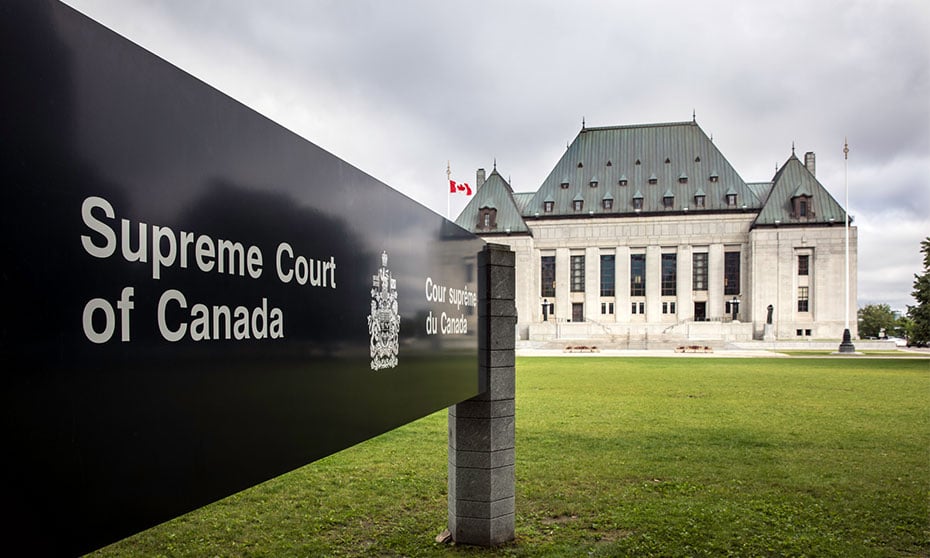Young offender has appeal of conviction dismissed, as majority finds that presumptive ceilings under Jordan not breached

The presumptive ceilings for delays established in Jordan should also apply to youth criminal trials, the Supreme Court of Canada ruled today. However, the appeal of a youth offender was dismissed, as the majority of the court decided that the delay in deciding the case did not exceed the ceiling set in the Jordan framework.
In R. v. K.J.M., the appellant, a young person, had been convicted of aggravated assault and possession of a dangerous weapon in 2016. He applied for, and was refused, a stay of proceedings on the basis that the 18 months and 28 days that had elapsed between the time he was charged and the time his trial concluded was unreasonable within the meaning of R. v. Jordan (which was decided while his court proceedings were taking place) and breached his s. 11(b) Charter right to be tried within a reasonable time.
The appellant appealed his conviction, arguing that the delay had not been properly assessed under Jordan. A majority of Alberta’s Court of Appeal dismissed the appeal; Justice Barbara Veldhuis would have allowed it and entered a stay of proceedings on the basis that the trial judge erred in her assessment of the presumptive ceiling applicable to young persons facing single-stage criminal proceedings in provincial court, and in relying on the “clearest of cases” principle in her assessment of the transitional exception.
In a 5/4 decision dismissing the appeal, the majority of the Supreme Court found that three to four months could be deducted for delays caused by the defence and by administrative problems, and the presumptive ceiling for delay established in Jordan had therefore not been breached.
At the same time, six justices found, these presumptive ceilings should apply to proceedings under the Youth Criminal Justice Act.
Three dissenting justices found that the ceiling should be lower for youthful offenders. Section 11(b) of Charter — which provides that any person charged with an offence has the right to be tried within a reasonable period of time — requires a lower ceiling of 15 months, rather than 18 months, for youth proceedings in the provincial court.
“The Supreme Court has actually lost an opportunity to make it clear that youth are to be given special procedural protections, and that the courts are going to be vigilant to ensure that those special procedural protections are maintained,” says Graham Johnson, who represented the appellant at trial and before Alberta’s Court of Appeal and the Supreme Court of Canada.
“While they have said all the right things, actions speak louder than words,” says Johnson, a partner at Dawson Duckett Garcia & Johnson in Edmonton, “and they've declined to actually do anything about [special procedural protections] in this case, [which] will serve as a guideline for others.”
The majority reasons — written by Justice Michael Moldaver with Chief Justice Richard Wagner and Justices Clément Gascon, Suzanne Côté and Malcolm Rowe concurring — noted that the enhanced need for timeliness in youth matters can and should be taken into account when determining whether delay falling below the presumptive ceiling is unreasonable.
But dissenting justices Rosalie Abella and Russell Brown, with Sheilah Martin concurring, went further in finding that a shorter timeline of 15 months should apply to youth to reflect the uniquely prejudicial impact of delay on them, and would have allowed the appeal.
In separate dissenting reasons, Justice Andromache Karakatsanis agreed with the majority that adult time limits should apply in youth criminal cases, but she would have allowed the appeal and stayed the appellant’s charges. She found that it was wrong to attribute trial delays to the accused in this case, and so the presumptive ceiling of 18 months was breached without justification. She also emphasized an increased need for timeliness in the youth criminal justice system.
“The court pontificated and said all the right things about why youth should proceed to trial more quickly than adults, but having said all the right things they effectively declined to do anything about it,” says Johnson.
Indeed, he says, “the majority judgment displays a shocking lack of understanding of the realities of the on-the-ground criminal justice system, particularly as it applies to youth [meaning] the vast majority of youth who find themselves in the criminal justice system, which is typically disadvantaged and marginalized youth.”
Many youths charged do not have significant family support, Johnson says, yet have to get themselves to court and handle themselves at a very young age with no parental support (his client in this case, the appellant, was not attended by a family member at a single court date, he says).
“The system needs to understand that. And if the system is going to pile on a 15- or 16-year-old for showing up late one day, that just shows the lack of understanding of what it's like for youth and what the youth criminal justice system is like in reality.”
In this case, Johnson says, the trial judge did not find that the proceedings were much affected by the appellant arriving “a bit late” to court one day, and was therefore surprised that a majority of the Supreme Court found that this resulted in a delay caused by the appellant/defence.
“The Supreme Court is entitled to substitute their judgment for lower court judgments with respect to the law,” he says. “That's what they're there for. … What a higher court is not supposed to do is substitute their judgment for the findings of facts of, in this case, a firsthand witness to the proceedings, that being the trial judge.”










